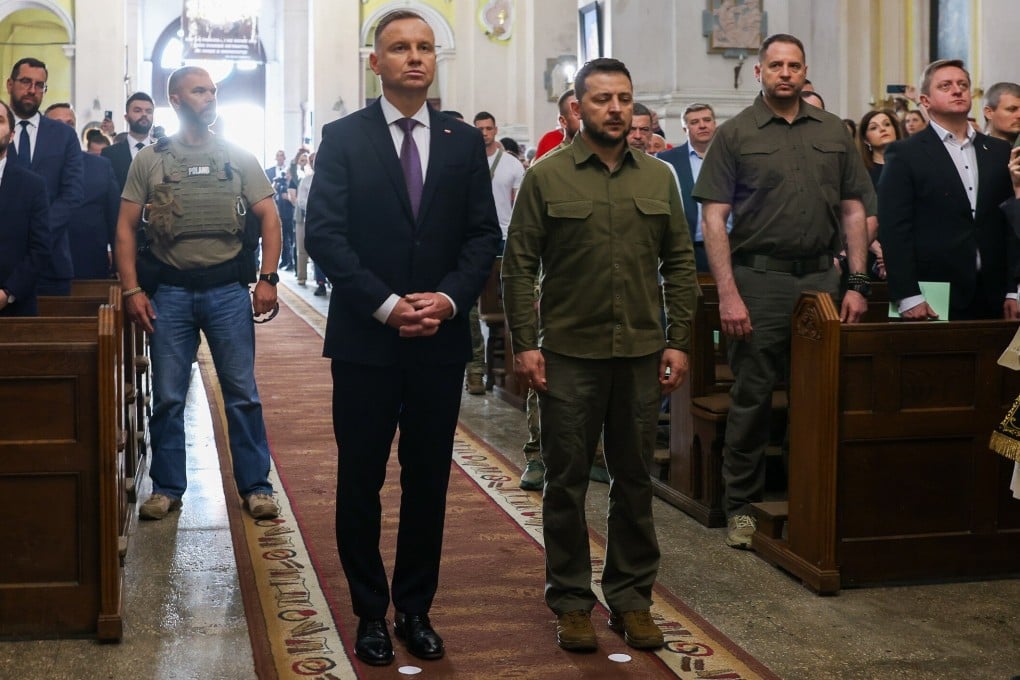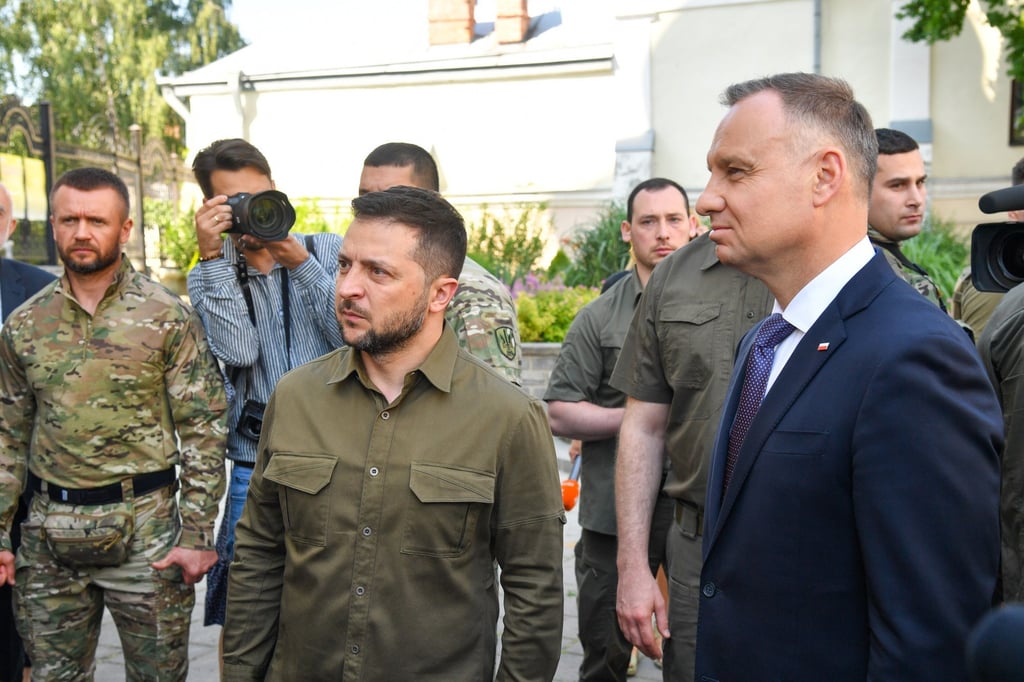Advertisement
Ukrainian and Polish presidents remember WWII Volhynia massacres
- ‘Together we honour the innocent victims of Volhynia! Memory unites us! Together we are stronger!’ Zelensky said on Telegram. The event was not publicised in advance
- During the war, nationalists of the Ukrainian Insurgent Army murdered around 100,000 Poles in Volhynia and Eastern Galicia between 1943 and 1945
Reading Time:1 minute
Why you can trust SCMP
1

Ukrainian President Volodymyr Zelensky and his Polish counterpart Andrzej Duda on Sunday commemorated the Volhynia massacres of World War II in an event in Lutsk, the north-western Ukrainian city where it took place.
“Together we honour the innocent victims of Volhynia! Memory unites us! Together we are stronger!” Zelensky said on Telegram. The event was not publicised in advance.
During the war, nationalists of the Ukrainian Insurgent Army (UPA) murdered around 100,000 Poles in Volhynia and Eastern Galicia between 1943 and 1945.
Advertisement
Zelensky published photos showing himself, Duda and clerics in the city which lies some 85km east of the Polish border.

Paweł Szrot, secretary of state in Duda’s office, termed the event “historic” in comments to broadcaster Polsat News. But he added that explaining the historical truth to Poland’s Ukrainian friends would continue.
Advertisement
Advertisement
Select Voice
Select Speed
1.00x